If you are looking wholesale lighting solutions, click here.
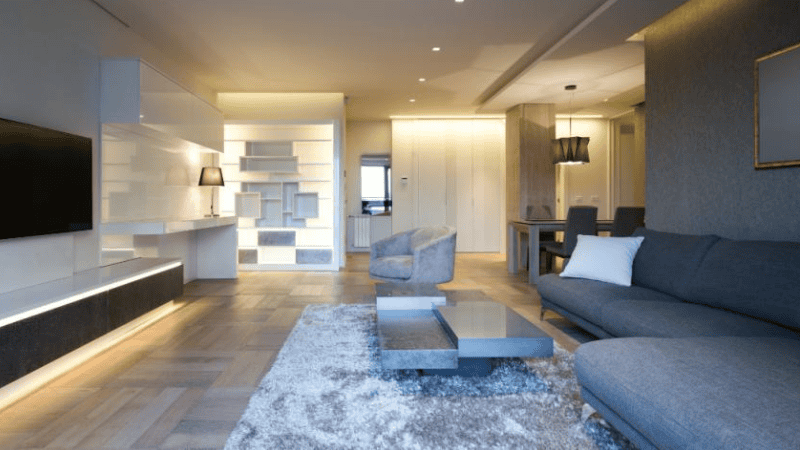
People usually underestimate the importance of lighting when designing a home’s interior. But it plays a key role in transforming an ordinary space into an extraordinary, lavish area. Light layering can highlight some corners of the room to create an aesthetically inviting ambiance, just like the rooms in design magazines.
The integration of overhead, accent, and task lights helps make interiors more deep, warm, and interesting. This versatility makes your space so mesmerizing that every corner narrates its significance and story.
In this guide, we will discuss light layering, its types, tips, and how to incorporate such lighting at home. Let’s get started.
Layered lights are a splendid lighting strategy for designing interior spaces. It involves using multiple light sources to increase aesthetic appeal and space functionality. This strategy adds more dimensions, depths, and illumination to your room, making it more comfortable and dynamic for different activities.
To incorporate layered lighting in your space, you must fully understand and thoughtfully plan it. For example, you can use overhead lights for an inviting ambiance, track lights for architectural details, and table lamps for task lighting in a living room.
This means the key is having ideas about how lighting can improve functionality or aesthetics in the space. Adjusting light intensity can efficiently change the functionality and mood of your room. Moreover, the placement of multiple light sources effectively elevates your home’s overall aesthetics.
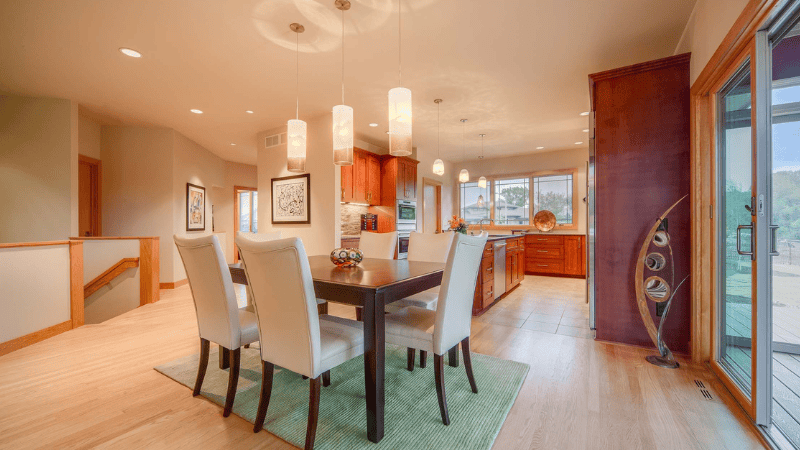
Layered light is not only important due to enhancement in the visual appeal of interior spaces but also for its practical functionality. Here are some of the reasons why you should incorporate layered lighting in interior design:
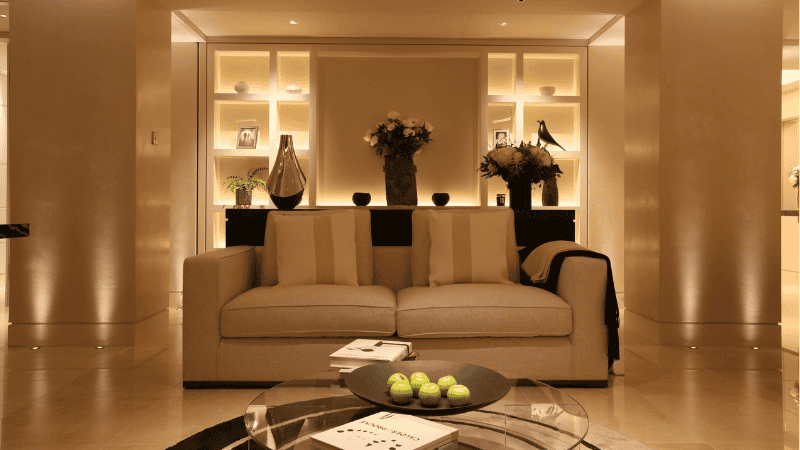
The following are some types of lighting that are useful in the creation of a layered lighting effect:
Ambient lights are the base of any layered lighting plan and ensure a consistent brightness level in every corner of the room. Such lighting options are important in setting the mood and allowing safe navigation in a space.
Some common ambient light sources are recessed lights, ceiling-mounted fixtures, and natural lights coming through windows. For instance, an LED downlight in a kitchen or a well-positioned chandelier in a dining area can make the space suitable for more detailed lighting tasks.
Task lighting is a focused lighting source for concentrating-demanding activities like reading, working, or cooking. It illuminates a particular room work area without disrupting the ambiance to reduce fatigue and eye strain.
Some common sources of task lighting are under-cabinet lights, floor lamps, and table lamps. You can customize your room’s lighting direction and intensity to make it ideal for home offices, kitchen counters, and reading nooks.
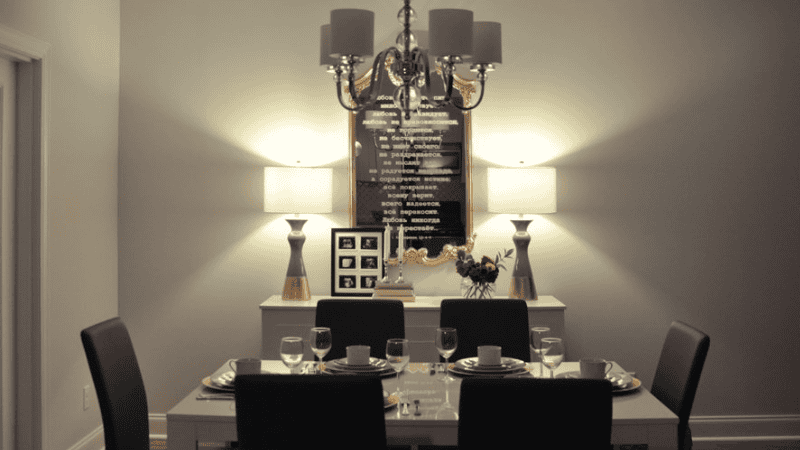
Accent lighting highlights particular design elements and specific objects in a room, adding more visual interest, drama, and depth. It is a focal point in your room’s interior design and lighting plan.
Picture lights, track lights, and wall lights, sconces are common sources of accent lighting. These sources provide directional light and can be adjusted anywhere to showcase architectural features or artwork to create a stunning visual impact.
Decorative light fixtures are accent lighting used to add decorative elements to the home. By adding character features, it boosts your space’s uniqueness and creativity.
Strings, pendants, and chandeliers are perfect decorative lighting to add creativity and style to your space. These lights come in different materials, sizes, and styles, providing endless options to upgrade your room interior.
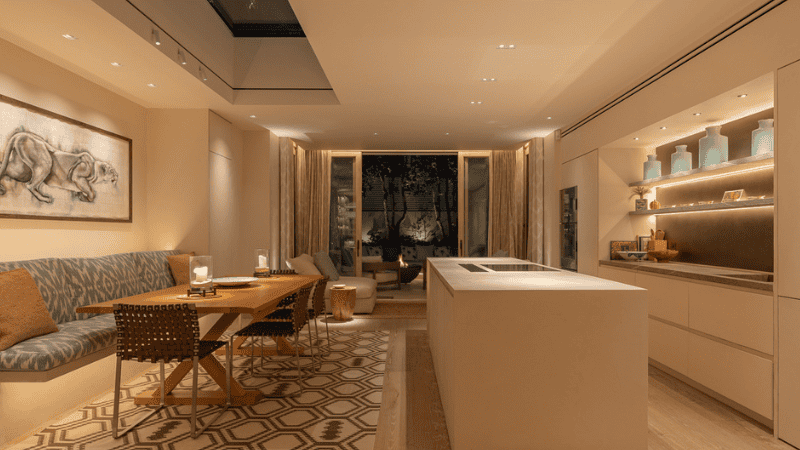
It’s essential to understand the basic types that form the foundation of this lighting technique.
Vertical layering includes floor, ceiling, and table lamps, among other light sources at different heights. Drawing the eye up and down gives a room more depth and visual intrigue.
To use vertical layering effectively, you need to assess the size of your space and select light fixtures comparable to the size.
For instance, you can prefer using a large chandelier in a small room for an overwhelming look, and in contrast, a single table lamp is not enough to give the required lighting effect in a large living room.
Horizontal layering uses light sources at different magnitudes and intervals, such as track lights, wall sconces, and floor lamps. This technique provides an exceptional facet to a room by shedding light across the walls and surfaces.
The positioning of furniture determines how light is distributed in a room, so this factor needs to be considered while implementing horizontal layering.
For example, fixing track lights above kitchen cabinets can brighten the entire room. Moreover, you can place a floor lamp behind a sofa to create a cozy reading nook.
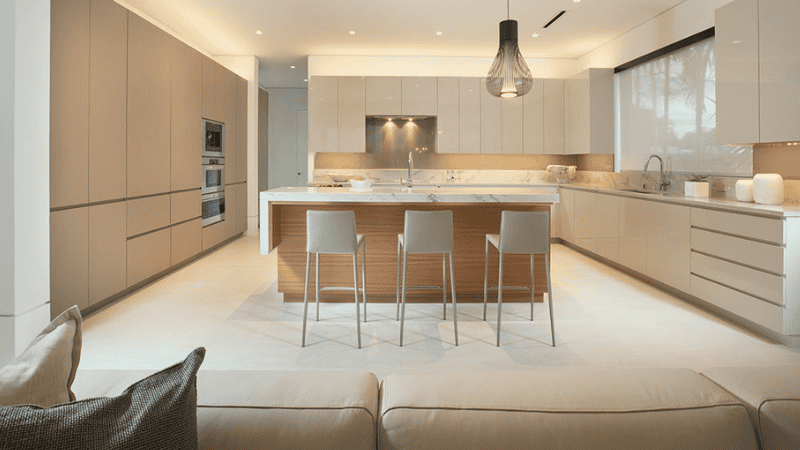
Decorative layering attracts attention and lightens up the room a bit more. The place where you fix this layering decides how bright your space will become.
The overall design of your space and the place of installation can boost the effect of decorative layering and give your space an aesthetic look. For instance, the latest-designed dining room can look more classy by fixing a modern chandelier, while you can create an eccentric look in your bedroom with string lights.
Depth layering involves artfully placing light sources in a room’s foreground, middle ground, and background. This provides a feeling of conformity and consistency and adds depth to a room.
Depth layering can be best utilized by considering your room’s natural flow and focal points. For example, you can create an enticing reading nook by placing a table lamp on a side table near your sofa, while a sconce over a fireplace can make this main feature of your room more attractive.
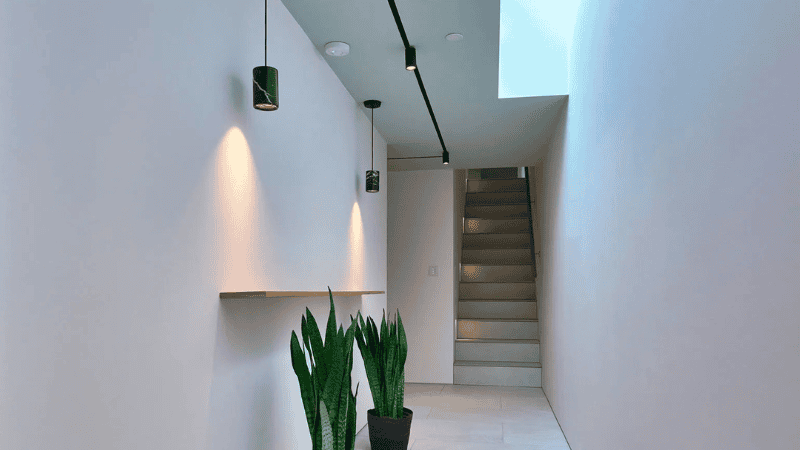
Below are some crucial points that can significantly contribute to giving an iconic look and feel to your space.
Selecting lighting fixtures for a layered lighting design requires considering a space’s function and style. The fixtures must be pragmatic for the planned purpose and enhance the room’s aesthetic look.
Go for a mix of fixture types, such as flush mounts for ambient lighting, desk lamps for task lighting, and accent lights for visual appeal. The right fixtures can intensify the tone, pinpoint the best facet of your home, and give a cohesive look.
Here is how you can implement layered lighting in different areas of your home:
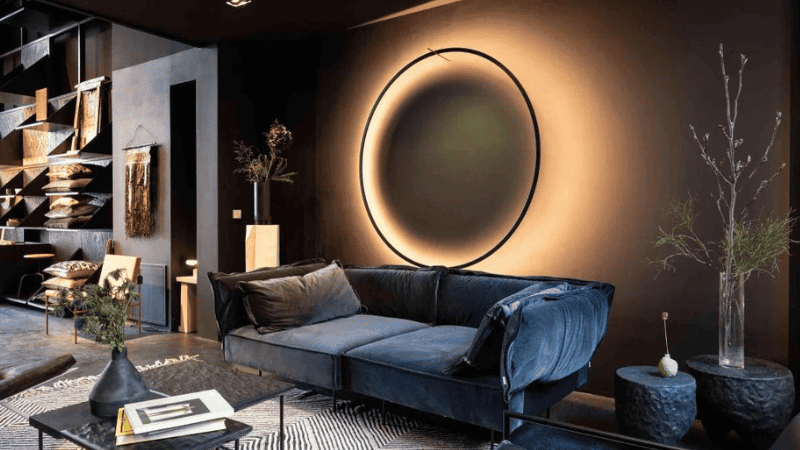
When enhancing your interior design, never ignore the importance of natural light. Natural light is also an essential element in layered lighting, along with artificial lighting sources. When making a plan for interior home lighting, make sure to consider the installation of skylights and windows.
You can use filters, such as sheer fabric, blinds, or curtains, to control the amount of natural light entering the room during the day. This helps you customize the lighting in your interior space.
LED lights have the following potential advantages in indoor lighting, making them a top choice for every interior designer and homeowner:
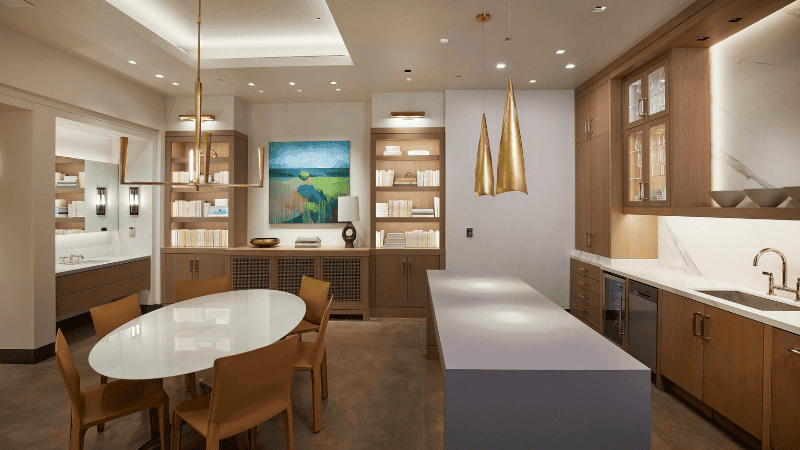
Layered lighting adds style, dimensions, and depth to your interior space and assures functional lighting for better visibility. You can create a visually appealing and well-lit functional space by incorporating multiple light sources at different levels and heights.
While selecting lighting fixtures, consider the intended purpose of lighting and the overall design aesthetic of the room. Another important factor to remember is the significance of natural light in layered lighting functionality and design.
Whether you are thinking about lighting updation or home renovation, incorporating layered lighting is a great idea to create a more inviting and dynamic home interior. At Risun, we offer the most efficient LED lighting options that can improve the overall aesthetics of your room while ensuring long-lasting, energy-efficient lighting solutions.
Even if you are looking for a supply chain management service or a one-stop lighting supply service, we have you covered. You can trust our experienced team to provide top-quality products and exceptional customer service.
Contact us today to learn more about our services and how we can help elevate your home’s lighting design.
Comprehensive Lighting Solutions for MRO Wholesalers and Professionals
send your inquiry
Hi, I'm the author of this post, and I have been in this field for more than 15 years. If you want to wholesale lighting fixtures or lighting related product, feel free to ask me any questions.
Learn More >>Download our catalog to view all of our lighting products.
Ready to get started ?
Send Your InquiryOur team will get back to you promptly

please
download
Get notified about new products
Our team will get back to you promptly!
Add your first comment to this post